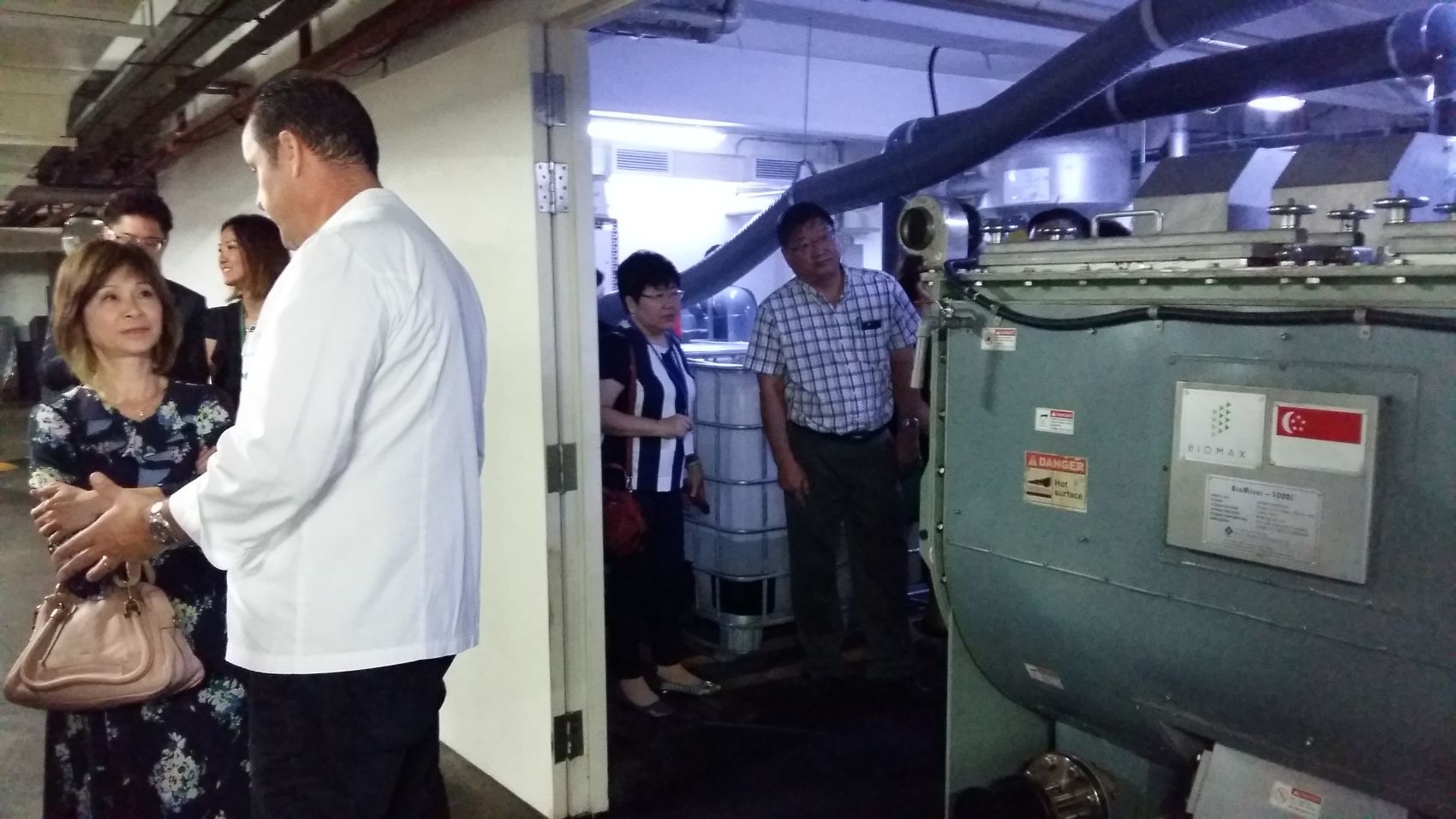Hotel recycles 500kg of food waste into fertiliser within 24 hours using food-waste digester
Sign up now: Get ST's newsletters delivered to your inbox

Dr Amy Khor (left) speaks to Chef Lucas Glanville, director of culinary operations at Grand Hyatt Singapore, beside the Biomax Thermophilic Digester machine which recycles food waste for the hotel.
ST PHOTO: TAN SUE-ANN
SINGAPORE - Grand Hyatt, a hotel near Orchard Road, has saved $100,000 a year, just by managing its waste.
Instead of throwing food waste into the bin, the hotel staff transfer them into a machine known as the Biomax Thermophilic Digester.
This technology recycles food waste such as vegetable, poultry, bones, egg shell, tissue paper and fruit peel from nine in-house restaurants and kitchens.
The food waste is then converted into pathogen-free organic fertilisers which are used for the hotel's landscaping purposes.
In a 24-hour cycle, the hotel can recycle 500kg of food waste.
This technology was highlighted as part of a professional sharing session on Saturday (Sept 16) by Waste Management and Recycling Association of Singapore (WMRAS) and the Singapore agent of Biomax, Green Infiniti.
About 90 guests attended the session, including Dr Amy Khor, advisor to WMRAS and Senior Minister of State of the Ministry of the Environment and Water Resources and Ministry of Health.
Participants discussed how food waste could be better recycled as well as how new technology such as the Biomax Digester could competently process different compositions of food waste.
"Only 14 per cent of food waste is recycled so WMRAS supports efforts to convert food waste to either compost or water for discharge. This is to make our living environment more sustainable because even if we incinerate food waste, it will produce ash for the Semakau landfill which will run out of space by 2035 to 2040," said Mr Edwin Pang, executive director of WMRAS
Food waste recycling systems were tested out at Grand Hyatt and Meridian Primary School.
Biomax also worked with other schools such as Sengkang Secondary and Punggol Secondary School.
The recycling helps Grand Hyatt to save on food waste haulage fees, operational and manpower expenses and cost of trash bags and bins.
The initiative also helps to indirectly reduce the hotel's carbon footprint as none of the food waste goes to the incineration plants.
At Meridian Primary, selected students known as "green champions" lead the others in recycling.
They set the example of emptying food waste into buckets in the canteen and separating it from inorganic materials like plastic.
After the machine converts the canteen food waste into fertiliser, the students are also involved in using the fertiliser to grow plants such as chilli and beans.


